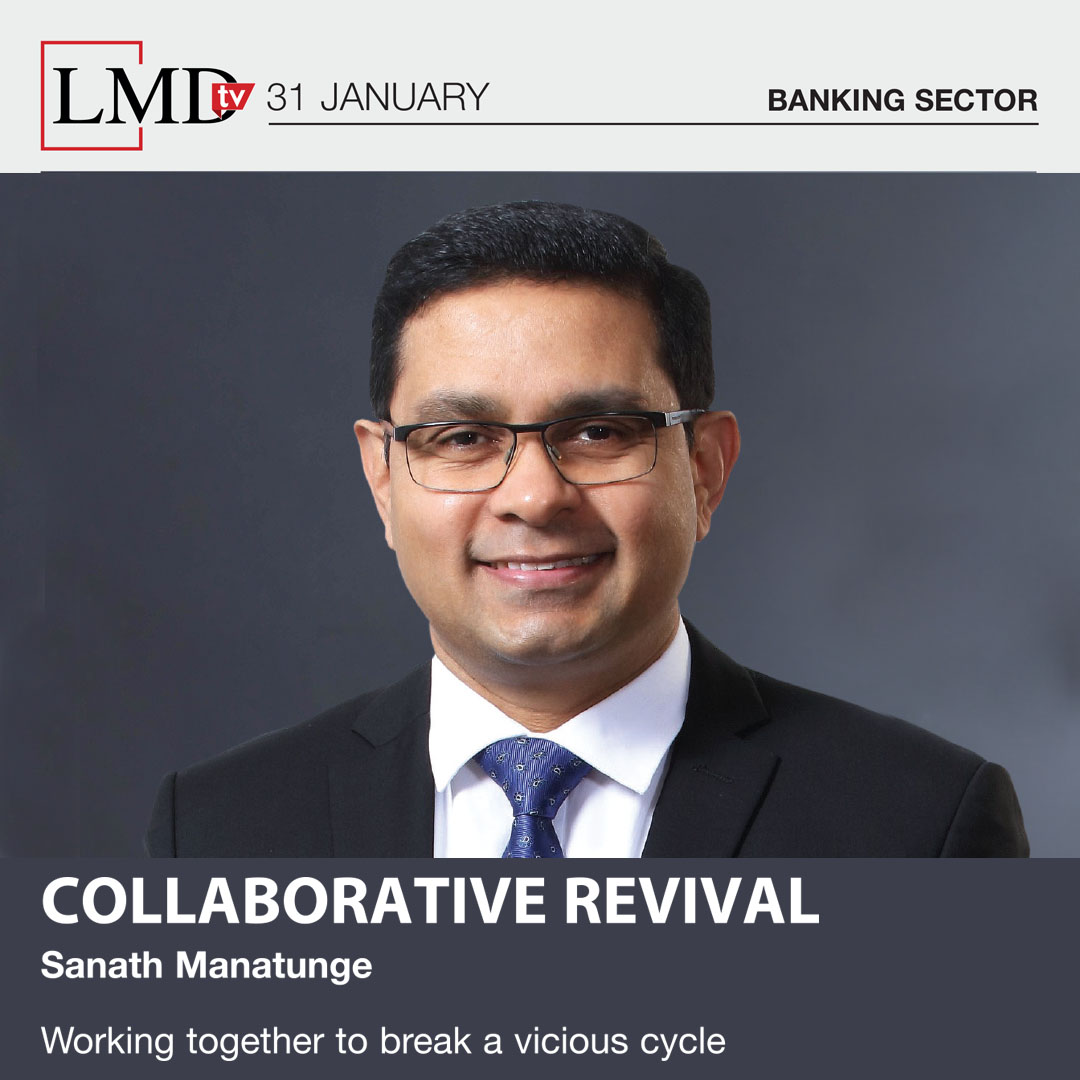 Sri Lanka’s economic crisis has had significant ripple effects on the day-to-day lives of its people and operations of all its industries including the banking sector.
Sri Lanka’s economic crisis has had significant ripple effects on the day-to-day lives of its people and operations of all its industries including the banking sector.
“Within a year, we were lucky to turn this around to some extent and although there are positive vibes around the market, we should not celebrate too early,” cautioned the Managing Director and CEO of Commercial Bank of Ceylon Sanath Manatunge, in a recent interview aired on LMDtv.
He mentioned that banks have seen some loan growth along with an uptick in private sector credit growth, which reflects the gradual rebounding of economic activity.
Declining interest rates, stabilising foreign currency exchange rates and tapering inflation are all signs of an economic revival.
“The people and business community have some faith and context to operate positively,” he averred, adding that with forex liquidity coming in – by way of exports, foreign workers’ remittances and tourism – the availability of raw materials for local manufacturing has also improved.
A country’s banking segment is a fundamental pillar of its economy since economic growth is highly dependent on the sector’s contributions – more so in a cash-strapped country. This puts pressure on banks to support the nation while managing their own operations during challenging times.
Manatunge noted: “We can’t act like a bank in a European country or the US because we operate in the context of the Sri Lankan economy and have a duty to support it. Our business model depends on Sri Lanka – the sector and individual banks should understand that we have to emerge from this crisis as an ecosystem. Customers, investors, banks, businesses and government entities should all work as a team.”
“We also need to understand the different challenges faced by various stakeholders in this negative context that we’ve been through for the last four to five years,” he emphasised, adding that “bankers need to have empathy for all stakeholders – especially customers and employees.”
The Managing Director and CEO of Commercial Bank also pointed out that although the economy is under stress, “the banking sector should not neglect futuristic initiatives like digitalisation, automation and applying analytics.”
“Otherwise, our industries will be lagging behind in the years to come compared to other countries,” he explained.
While technology is an enabler for banks, whether the country is ready for the next phase of digitalisation is a concern. Manatunge pointed out that while Sri Lanka’s per capita data usage is at a good level in regional terms, it’s more concentrated on social media activities whereas in neighbouring India, data is used for more productive economic activities.
“We need to show that digital platforms are beyond transactions,” he explained, stressing that even SMEs can benefit from these developments.
He elaborated: “If they can reach out to these digital platforms, there are opportunities to showcase their products, quality and pricing. They would be able to enrich and expand their businesses beyond regional boundaries.”
Manatunge added that adopting digital platforms for payments will also help small and medium enterprises secure more borrowings due to cash flow transparency.
And he emphasised the need for Sri Lanka to be committed to having “honesty, integrity, governance, transparency and accountability” if the country is to undergo a revival.
He stated: “All [stakeholders], from politicians and the government sector, to the private sector and entire population, should be committed to these qualities so that as a country, we inculcate them into the next generations.”
“Given what we’ve experienced, we need to have a positive mindset as a country to overcome our issues,” Manatunge said, noting that “we need to understand where we went wrong – so that we do not go through the same vicious cycle that we’ve been through many times without learning lessons.”

